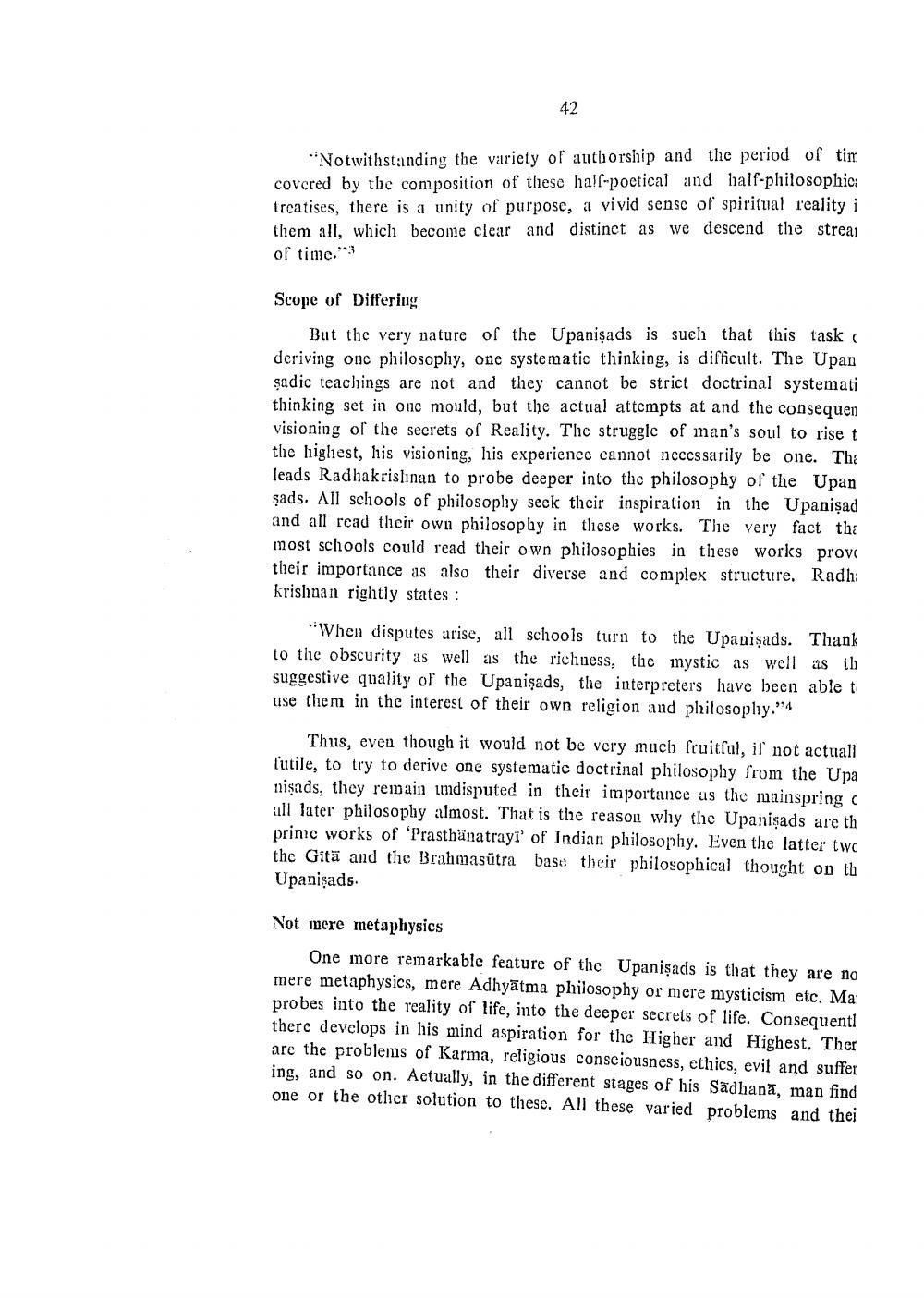________________
42
"Notwithstanding the variety of authorship and the period of tim covered by the composition of these half-poetical and half-philosophic: trcatises, there is a unity of purpose, a vivid sense of spiritual reality i them all, which become clear and distinct as we descend the strear of time.3
Scope of Differing
But the very nature of the Upanişads is such that this task deriving one philosoply, one systematic thinking, is difficult. The Upan şadic teachings are not and they cannot be strict doctrinal systemati thinking set in one mould, but the actual attempts at and the consequen visioning of the secrets of Reality. The struggle of man's soul to riset the highest, his visioning, his experience cannot necessarily be one. Tha leads Radhakrislinan to probe deeper into the philosophy of the Upan şads. All schools of philosophy seck their inspiration in the Upanişad and all read their own philosophy in these works. The very fact tha most schools could read their own philosophies in these works prove their importance as also their diverse and complex structure. Radhi krishnan rightly states:
"When disputes arise, all schools turn to the Upanişads. Thank to the obscurity as well as the richness, the mystic as well as th suggestive quality of the Upanişads, the interpreters have been able to use them in the interest of their own religion and philosoplıy."4
Thus, even though it would not be very much fruitful, il' not actuall l'utile, to try to derive one systematic doctrinal philosophy from the Upa nişads, they remain undisputed in their importance as the mainspring o all later philosophy almost. That is the reason why the Upanişads are th primc works of 'Prasthänatrayi' of Indian philosophy. Even the latter two the Gita and the Brahmasūtra base their philosophical thought on th Upanişads.
Not mere metaphysics
One more remarkable feature of the Upanişads is that they are no mere metaphysics, mere Adhyātma philosophy or mere mysticism etc. Mai probes into the reality of life, into the deeper secrets of life. Consequenti there develops in his mind aspiration for the Higher and Highest. Ther are the problems of Karma, religious consciousness, ethics, evil and suffer ing, and so on. Actually, in the different stages of his Sadhanā, man find one or the otlier solution to these. All these varied problems and the




